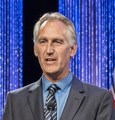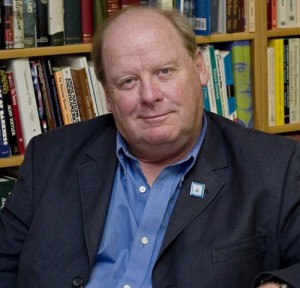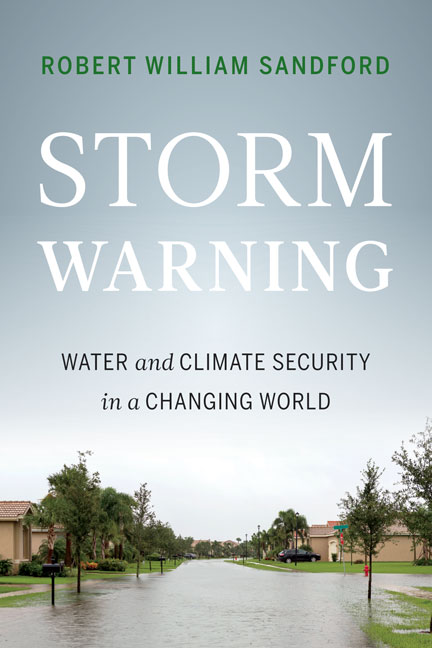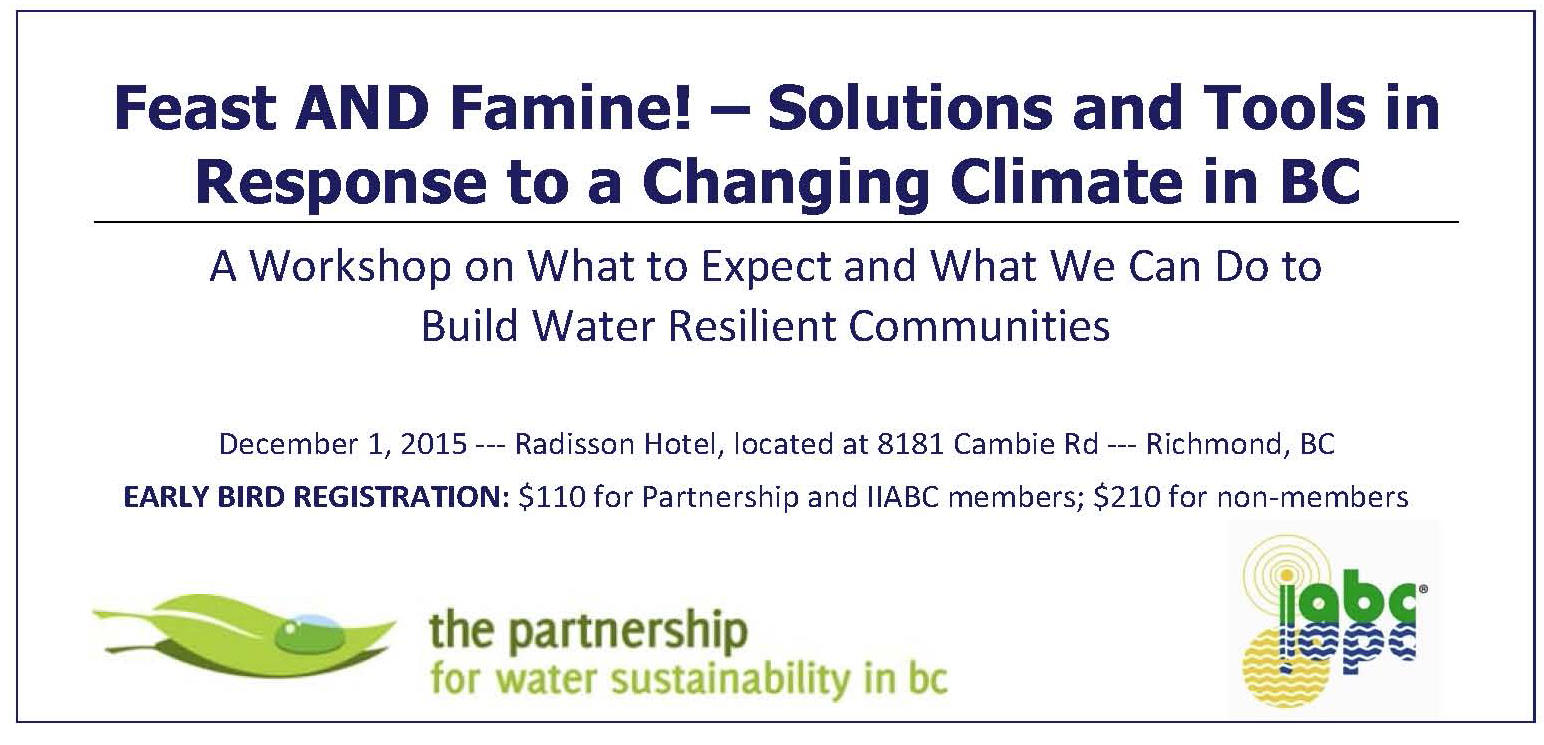Feast AND Famine Workshop: Partnership for Water Sustainability and IIABC announce that author Bob Sandford will speak to “Hydro-Climatic Change & Its Consequences”
“The drought of 2015 suggests we may be crossing an invisible threshold into a different hydro-meteorological regime in Western North America. This would have huge consequences for water security,” observes Bob Sandford
The ‘new normal’ in British Columbia is floods and droughts. The summer dry season has extended on both ends and we can no longer count on a predictable snowpack and reliable rain to maintain a healthy water balance in our watersheds. Annual volumes of water entering and exiting our regions are not necessarily changing; instead, what is changing is how and when water arrives – it is feast AND famine!
The New Normal
“The drought that we are currently experiencing in British Columbia shows how quickly thing can change. In addition to drought, we experienced a record-breaking windstorm this summer. Past BC experience is that extremes follow extremes. This means we can expect the 2015 drought to be followed by floods later in the year. Are we ready for future scenarios and have we considered all of our options to face the future?” observes Ted van der Gulik, President of the Partnership for Water Sustainability in BC.
“ To inform the discussion, the Partnership and the Irrigation Industry Association are excited to announce that Bob Sandford will be the keynote presenter for our Feast AND Famine Workshop on December 1st. Bob Sandford is a highly respected ‘water champion’. He is committed to translating scientific research outcomes into language decision-makers can use to craft timely and meaningful public policy. His latest book is Storm Warning: Water & Climate Security in a Changing World.”
To inform the discussion, the Partnership and the Irrigation Industry Association are excited to announce that Bob Sandford will be the keynote presenter for our Feast AND Famine Workshop on December 1st. Bob Sandford is a highly respected ‘water champion’. He is committed to translating scientific research outcomes into language decision-makers can use to craft timely and meaningful public policy. His latest book is Storm Warning: Water & Climate Security in a Changing World.”
“Adaptation is local in application. Hence, this workshop on responding to a changing climate is about solutions and tools that are being developed in BC through collaboration to support practitioners and decision makers to take action at a local level,” concludes Ted van der Gulik.
Hydro-Climatic Change & Its Consequences
“After a period of relative hydro-climatic stability, changes in the composition of the Earth’s atmosphere have resulted in the acceleration of the global hydrologic cycle with huge implications for every region of the world and every sector of the global economy,” states Bob Sandford. A widely published author, he is EPCOR Chair for Water and Climate Security at the United Nations University Institute for Water, Environment and Health. His background is in the physical sciences and his interest is our relationship with the landscape.
“ We can expect deeper, more persistent drought punctuated by flooding. On the prairies, for example, we had average precipitation throughout the fall, winter and spring. But temperatures in the Rockies were on average 3 to 4 degrees Celsius warmer than normal. Much of that precipitation fell as rain, the snowpack remained small and melted 4 to 6 weeks earlier with predictable effects on peak flows. We were in drought here before we knew it. We expect this trend to continue. We also expect the trend toward extremes to continue.”
We can expect deeper, more persistent drought punctuated by flooding. On the prairies, for example, we had average precipitation throughout the fall, winter and spring. But temperatures in the Rockies were on average 3 to 4 degrees Celsius warmer than normal. Much of that precipitation fell as rain, the snowpack remained small and melted 4 to 6 weeks earlier with predictable effects on peak flows. We were in drought here before we knew it. We expect this trend to continue. We also expect the trend toward extremes to continue.”
“It is interesting to think about how these kinds of changes make historic averages meaningless. BC Hydro did not seem to think climate change was going to be a big deal in the Columbia Basin because projections suggested that overall precipitation would not be diminished. If you go 360 days enduring deep drought and then get a year’s rainfall in five days, average precipitation remains the same – but the effects are very different. That’s fine if your principal concern is hydro-power generation. But annual averages can be very deceiving. Regime changes matter far more than many thought.”
“The drought that extended this past winter, spring and summer from Vancouver Island to Manitoba and from Mexico to the Yukon suggests we may be crossing an invisible threshold into a different hydro-meteorological regime in Western North America. This would have huge consequences for water security,” concludes Bob Sandford.
To Learn More:
The Partnership and IIABC have released a Program Overview that provides a detailed picture of what to expect in each of the four modules that comprise the workshop day. To download a copy, click on Feast AND Famine! – Solutions and Tools in Response to a Changing Climate.



